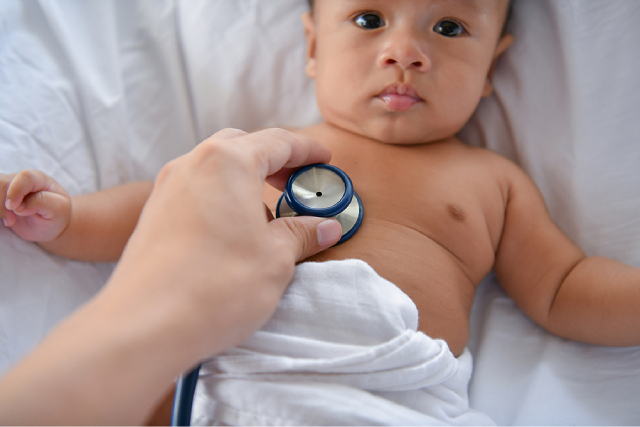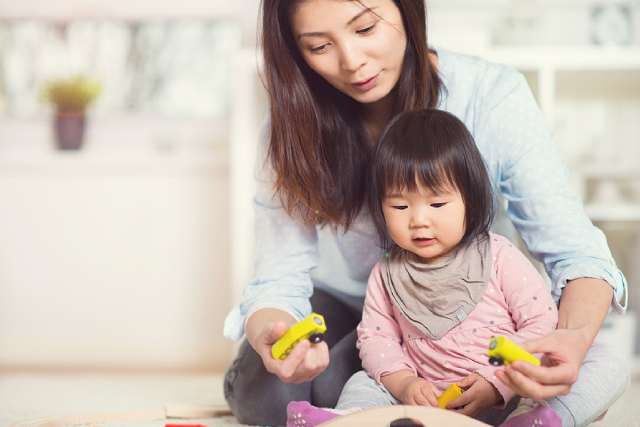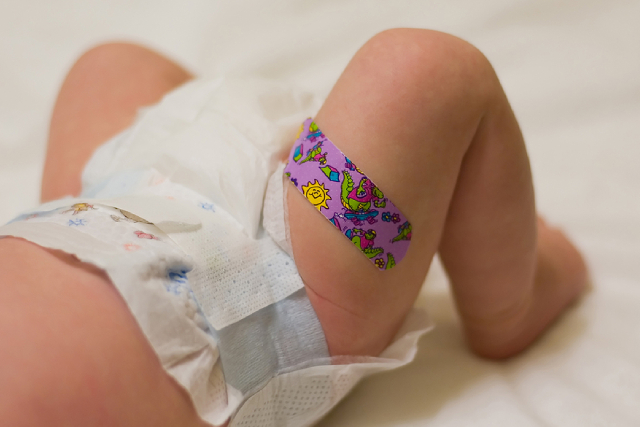
blog
What if Your Child Is Sick?: Tips and When to Call a Doctor

Most young children—even those who have undergone baby immunisation vaccination—end up falling ill at one point in their adolescence.
Whether it's a mild fever, a persistent cough, or unexplained symptoms, knowing how to respond can make a significant difference in managing your child's health. This guide provides practical tips on how to care for a sick child at home and outlines when it's crucial to call a doctor.
Tips for Caring for a Sick Child at Home
1. Hydration is Key
Ensure your child stays well-hydrated, especially if they have a fever, vomiting, or diarrhoea. Offer small, frequent sips of water, oral rehydration solutions, or electrolyte drinks. Breastfeeding or formula-feeding infants should continue to receive their regular feeds.
2. Provide Comfort and Rest
Encourage your child to rest as much as possible. Create a comfortable environment by ensuring they have their favourite blanket, toys, and a quiet space to sleep. Use pillows to elevate their head if they have a stuffy nose or cough.
When your child is awake, make sure to avoid activities that are too stimulating.
3. Monitor Symptoms
Keep a close eye on your child's symptoms. Note their temperature, the frequency of vomiting or diarrhoea, and any other significant changes. This information can be valuable if you need to consult a doctor.
4. Use Over-the-Counter Medications Wisely
For children over six months, you can use acetaminophen (Tylenol) or ibuprofen (Advil) to reduce fever and relieve pain. Always follow the dosage instructions on the label or those provided by your paediatrician. Never give aspirin to children due to the risk of Reye's syndrome.
5. Practice Good Hygiene
To prevent the spread of illness within your household, encourage frequent handwashing, use tissues for coughs and sneezes, and disinfect commonly touched surfaces. Ensure your child covers their mouth when coughing or sneezing.
6. Maintain a Balanced Diet
If your child feels up to eating, offer small, nutritious meals and snacks. Avoid forcing food if they lack appetite, but encourage nutrient-rich foods when they are willing to eat.
When to Call a Doctor
While many childhood illnesses can be managed at home, certain symptoms and situations warrant a call to the doctor. Here’s when to seek medical advice:
1. High Fever
For infants under three months, any fever above 38°C requires immediate medical attention. For older babies and children, call a doctor if their fever is 39°C or higher or if the fever persists for more than three days.
2. Difficulty Breathing
Seek immediate medical help if your child has difficulty breathing, rapid breathing, wheezing, or if their lips or face turn blue. These could be signs of a serious respiratory condition.
3. Persistent Vomiting or Diarrhoea
If your child is vomiting or has diarrhoea persistently, they are at risk of dehydration. Signs of dehydration include dry mouth, no tears when crying, infrequent urination, and lethargy. Contact your paediatrician if these symptoms appear.
4. Severe Pain
Severe or persistent pain, such as ear pain, abdominal pain, or headaches, should be evaluated by a doctor. Pain that disrupts sleep or daily activities is particularly concerning.
5. Rashes
A rash that is widespread, appears suddenly, or is accompanied by fever could indicate an allergic reaction or an infectious disease. Seek medical advice to determine the cause and appropriate treatment.
6. Changes in Behaviour or Responsiveness
If your child is unusually drowsy, difficult to wake, or not responding as usual, it's important to contact a healthcare provider. Sudden changes in behaviour, such as confusion or extreme irritability, also warrant a doctor's visit.
7. Persistent Cough or Difficulty Swallowing
A persistent cough lasting more than a week or a cough that is causing vomiting requires medical evaluation. Difficulty swallowing, drooling, or refusal to eat or drink can indicate a serious condition that needs attention.
8. Symptoms of Serious Conditions
Be aware of the signs of more serious conditions such as meningitis (stiff neck, severe headache, sensitivity to light, rash), appendicitis (severe abdominal pain, especially in the lower right side, vomiting, fever), or urinary tract infections (painful urination, frequent urination, abdominal pain).
Preparing for the Doctor’s Visit
If you decide to visit the doctor, being prepared can help make the most of the appointment:
- Keep a Symptom Diary: Note the onset, duration, and severity of symptoms, as well as any treatments you've tried and their effects.
- List of Medications: Bring a list of any medications your child is taking, including over-the-counter drugs and supplements.
- Medical History: Be ready to discuss your child’s medical history, including any previous illnesses, allergies, and vaccinations.
- Questions for the Doctor: Write down any questions or concerns you have to ensure you address everything during the visit.
Conclusion
Caring for a sick child can be stressful, but understanding how to manage common illnesses at home and knowing when to seek medical help can provide peace of mind. Remember that you know your child best—trust your instincts and don't hesitate to reach out to a healthcare professional if you are concerned.
Is your child feeling under the weather? At Babysteps Medical, we offer doctor house visits in Singapore so you and your little one can have peace of mind even at home. Our services include child developmental assessments and newborn jaundice treatment in Singapore. Contact us for more information.



